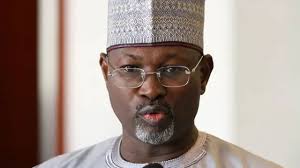Professor Attahiru Jega, former Chairman of Nigeria’s Independent National Electoral Commission (INEC), is advising Nigeria to critically assess guidance from international bodies like the World Bank and International Monetary Fund (IMF) rather than adopting it wholesale. Jega’s statement, delivered on Wednesday at the 2024 Annual Directors’ Conference hosted by the Chartered Institute of Directors (CIoD) of Nigeria, emphasizes the need for discernment in adopting foreign economic policies.
Themed “Good Governance as a Catalyst for Economic Recovery, Growth, and Development,” the conference highlights how governance practices shape Nigeria’s economic path.
Jega stresses that while insights from global financial institutions can be informative, Nigeria’s leaders should approach such advice with caution to avoid potential socioeconomic harm. He warns against solely pursuing the form of “good governance” often promoted by Bretton Woods institutions, which he argues fails to address Nigeria’s unique needs.
“What Nigeria truly requires is ‘good democratic governance,’ grounded in constitutional principles, rule of law, ethical conduct by public officials, and a dedication to selfless service,” Jega states. He calls for reforms in leadership selection to ensure that leaders are well-prepared and equipped to serve.
Promoting Corporate Governance in Nigeria
At the event, CIoD President Alhaji Tijani Borodo underscores the organization’s commitment to elevating corporate governance standards in Nigeria. He notes that the CIoD focuses on enhancing the skills of directors and business leaders across sectors, thus enabling them to make positive contributions to their communities and the country. “Our mission is to connect leaders with one another and the government to foster an enabling business climate, even in challenging times,” Borodo affirms.
Key Context
Institutions like the World Bank and IMF have recently drawn criticism for their perceived impact on Nigerian policies. The IMF has been linked to Nigeria’s recent fuel subsidy removal, though it denies direct involvement. Similarly, World Bank Chief Economist Indermit Gill’s recent comment about the need for sustained reform over the next 15 years for growth has sparked debate, with many Nigerians concerned over the impact on ordinary citizens.
The Nigerian government maintains that its policies are self-determined, pushing back against claims that they are primarily influenced by external financial institutions.













